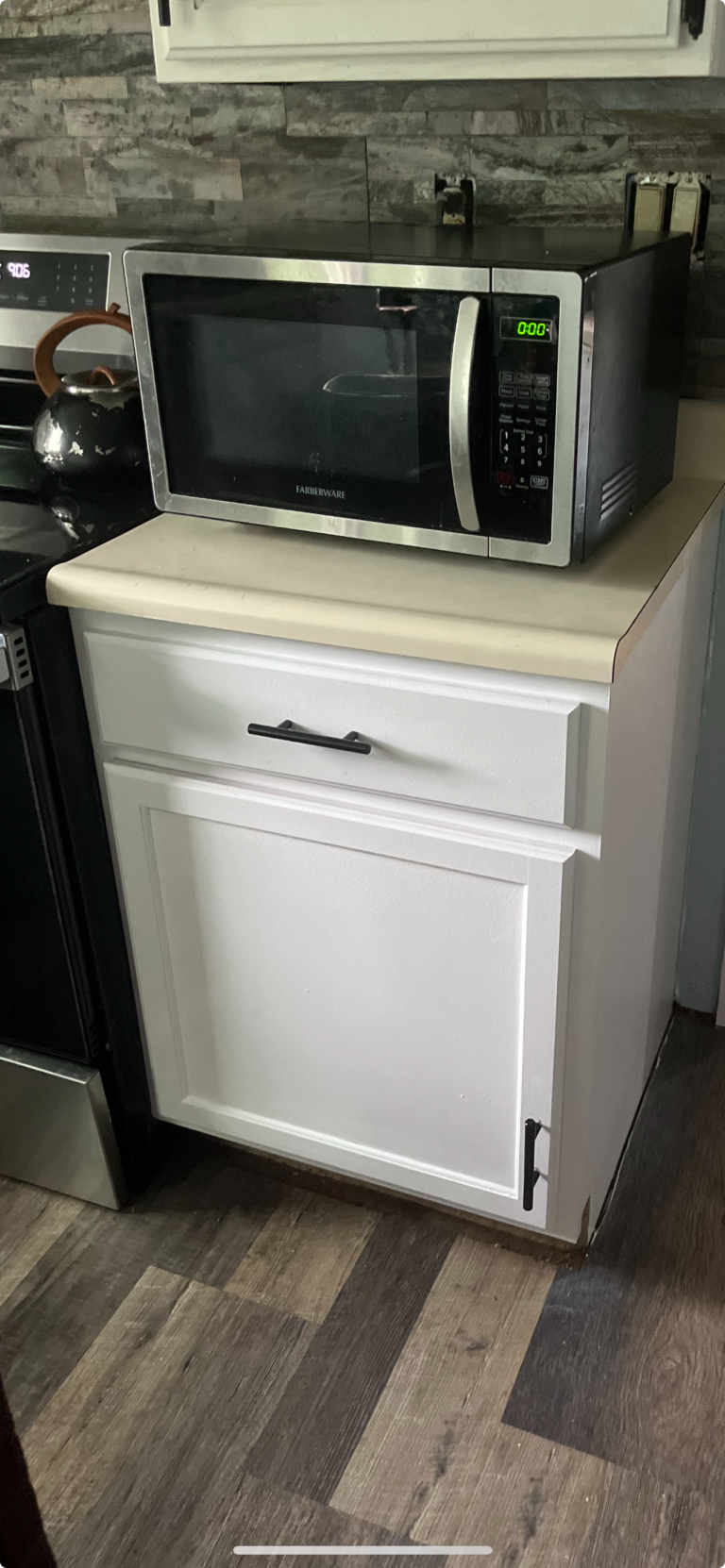Discover three effective habits for good self-care, including setting boundaries with No Meeting Mondays, starting the day with pleasure and beauty, and decluttering life from negativity. These habits can enhance overall well-being, reduce stress levels, and improve work-life balance.

Three habits for good self care
Self-care is not just about pampering oneself with occasional treats but encompasses intentional actions that preserve or enhance overall well-being. It is crucial to understand that self-care extends beyond physical health to include mental and emotional wellness, encompassing practices that nurture the mind, body, and spirit. Research indicates that regular self-care routines can lead to reduced stress levels and increased productivity, emphasizing the importance of incorporating self-care habits into daily life. For example, simple activities like taking a leisurely walk, practicing mindfulness, or engaging in creative hobbies can have profound effects on mental well-being and overall happiness [5]. Prioritizing self-care is a proactive approach to maintaining a healthy and balanced life, ensuring individuals can thrive in various aspects of their daily routines.
One example of a self-care habit that can significantly impact mental well-being is practicing gratitude daily. By taking a few moments each day to reflect on things one is grateful for, individuals can shift their focus from negativity to positivity, reducing stress levels and increasing feelings of happiness. This practice not only enhances emotional well-being but also fosters resilience in the face of challenges, enabling individuals to navigate life’s ups and downs with a more positive outlook. Gratitude journaling, where individuals write down things they are thankful for, can be a powerful tool in cultivating a mindset of appreciation and contentment, leading to a more fulfilling and balanced life.
Another beneficial self-care habit is spending time in nature, which has been shown to have profound effects on mental health and overall well-being. Whether it involves going for a walk in the park, hiking in the mountains, or simply sitting in a garden, connecting with the natural world can reduce stress, improve mood, and enhance feelings of relaxation. Immersing oneself in nature allows for a break from the hustle and bustle of daily life, providing a sense of peace and tranquility. The sights, sounds, and smells of nature have a calming effect on the mind, promoting mental clarity and emotional well-being, making it an essential self-care practice.
In addition to gratitude practice and nature immersion, engaging in creative activities is a valuable self-care habit that fosters self-expression and emotional well-being. Creative expression, whether through art, music, writing, or other forms, can be therapeutic and empowering, allowing individuals to channel their emotions and tap into their inner creativity. Creating something new not only boosts self-esteem and self-awareness but also provides a sense of purpose and fulfillment. By incorporating these habits into daily routines, individuals can nurture their well-being and lead more balanced, fulfilling lives, emphasizing the importance of self-care in enhancing overall quality of life.
 Introduction to Self-Care Habits
Introduction to Self-Care Habits
Self-care involves intentional actions aimed at preserving or enhancing one’s overall well-being, encompassing not only physical health but also mental and emotional wellness. By dedicating time to self-care, individuals can enhance their quality of life and maintain a sense of balance. For instance, simple activities like taking a leisurely walk, practicing mindfulness, or engaging in a creative hobby can have profound positive effects on one’s mental state and overall happiness. Prioritizing self-care is not selfish but rather a necessary practice to ensure individuals can continue to thrive in all aspects of their lives. It is essential to incorporate self-care practices into daily routines for long-term well-being and happiness.
Research supports the notion that regular self-care practices contribute to reduced stress levels and increased productivity, underlining the significance of integrating self-care habits into daily life. By incorporating self-care routines, individuals can effectively manage stress, enhance focus, and boost their confidence, leading to a more balanced and fulfilling life. For example, setting aside time for a daily journaling session can help individuals process their emotions, set goals, and gain clarity on their priorities. This practice not only improves mental well-being but also fosters a sense of accomplishment and self-awareness, highlighting the transformative power of self-care habits in enhancing overall quality of life.
The concept of self-care extends beyond physical health to encompass mental and emotional well-being, emphasizing the importance of nurturing all aspects of one’s health. By embracing self-care practices, individuals can cultivate resilience, reduce stress levels, and enhance their overall quality of life. Incorporating self-care habits into daily routines is essential for maintaining a healthy work-life balance and preventing burnout, ensuring individuals can thrive in various aspects of their lives. For instance, establishing a nightly routine that includes relaxation techniques can promote better sleep and mental clarity, contributing to overall well-being and productivity. Prioritizing self-care is a proactive approach to enhancing success and happiness, encouraging individuals to invest in their well-being for long-term fulfillment.
Habit: Setting Boundaries with “No Meeting Mondays”
Setting boundaries is a crucial aspect of self-care that can significantly impact overall well-being. “No Meeting Mondays” is a specific example of a boundary-setting practice that allows individuals to protect their time and mental energy at the start of the week. This habit not only creates space for important tasks and projects but also fosters a sense of control and autonomy in one’s schedule. By implementing “No Meeting Mondays,” individuals can establish a work environment that supports their well-being and success, prioritizing personal time and productivity.
Moreover, by designating a day free from meetings, individuals can focus on deep work, creative projects, or self-care activities that often get sidelined in a hectic workweek. This intentional time management strategy can lead to increased productivity, reduced stress levels, and a greater sense of accomplishment. By prioritizing personal time through practices like “No Meeting Mondays,” individuals can create a work-life balance that supports their overall well-being and success in various aspects of their lives. Setting boundaries is essential for preventing overwhelm and maintaining a healthy equilibrium in one’s personal and professional life, underscoring the importance of self-care in enhancing overall quality of life.
Habit: Starting the Day with Pleasure and Beauty
Starting the day with pleasurable activities sets a positive tone for the rest of the day, contributing to an individual’s mental well-being and productivity. For example, taking a few minutes to enjoy a cup of coffee or tea in the morning can create a sense of comfort and relaxation before the day’s responsibilities begin. Engaging in activities that bring joy, such as listening to uplifting music or practicing gratitude, can help in reducing anxiety and increasing motivation throughout the day. By incorporating pleasurable experiences into the morning routine, individuals can enhance their overall well-being and set a positive trajectory for the day ahead.
Moreover, incorporating beauty into the morning routine can have a profound impact on one’s well-being, promoting a sense of calmness and appreciation. This could involve simply admiring nature through a window, appreciating artwork, or arranging a small area in the home with aesthetically pleasing items. These small acts of beauty can cultivate a positive mindset and emotional resilience, enhancing mental clarity and overall happiness. By intentionally starting each day with pleasure and beauty, individuals can proactively set themselves up for a more positive and fulfilling day ahead, emphasizing the transformative power of self-care habits in enhancing daily life.
 Habit: Decluttering Life from Negativity
Habit: Decluttering Life from Negativity
Decluttering life from negativity is a powerful self-care habit that involves removing toxic influences and creating a positive environment. This practice goes beyond tidying physical spaces to encompass mental and emotional decluttering, promoting mental well-being and overall positivity. For example, toxic relationships, negative self-talk, and cluttered environments can all impact mental health and emotional resilience, highlighting the importance of decluttering life from negativity. By actively identifying and removing these negative influences, individuals can create a harmonious environment that supports their overall well-being and happiness.
Moreover, decluttering can extend beyond physical surroundings to mental space, involving practices like journaling, meditation, and setting boundaries. Engaging in activities that release mental pressure, promote mindfulness, and protect personal time can lead to increased focus, clarity, and a sense of peace. By practicing decluttering techniques, individuals can enhance their mental well-being, reduce anxiety, and cultivate a positive mindset. Creating a clutter-free environment both externally and internally is essential for supporting emotional health and fostering a sense of calm and balance in daily life, highlighting the transformative impact of decluttering as a self-care practice.
 Benefits of Regular Self-Care Practices
Benefits of Regular Self-Care Practices
Engaging in regular self-care practices is essential for improving mental, physical, and emotional well-being, emphasizing the importance of incorporating self-care habits into daily routines. By incorporating simple activities into daily life, individuals can experience significant enhancements in their overall quality of life. For example, journaling has been shown to be a powerful tool for self-reflection, helping individuals gain insight into their emotions, set priorities, and alleviate stress. Taking the time to jot down thoughts and feelings can provide a sense of clarity and promote mental well-being, contributing to a more balanced and fulfilling life.
Moreover, staying hydrated and maintaining a clutter-free environment are underrated yet impactful self-care practices that support overall well-being. Hydration plays a crucial role in supporting bodily functions and cognitive performance, making it vital for physical and mental health. Similarly, decluttering one’s physical space can lead to a decluttering of the mind, enhancing focus, productivity, and mental clarity. By creating an organized and peaceful environment, individuals can reduce stress levels and promote a sense of calm within themselves. Additionally, setting boundaries with technology is key to preventing information overload and digital fatigue, fostering healthier screen habits and improving overall well-being. By establishing limits on screen time and unplugging when necessary, individuals can protect their mental health and maintain a healthy balance in their lives, highlighting the transformative impact of self-care practices in enhancing daily life.
Recommended Self-Care Tips by National Institute of Mental Health
The National Institute of Mental Health provides valuable insights into self-care practices that significantly impact mental well-being and overall quality of life. Incorporating exercise into daily routines not only promotes physical health but also contributes to improved mental clarity and emotional stability. For example, engaging in activities like yoga, running, or dancing can release endorphins, known as the body’s natural mood lifters, which can help reduce stress and anxiety levels. Physical activity is not only beneficial for the body but also for the mind, highlighting the importance of exercise in self-care routines.
Moreover, the NIMH emphasizes the significance of healthy eating for overall well-being, underscoring the importance of nutrition in mental health. Consuming a balanced diet rich in nutrients provides the brain with essential vitamins and minerals necessary for optimal functioning. For instance, foods high in omega-3 fatty acids, such as salmon and walnuts, have been linked to improved cognitive function and mood regulation, supporting mental wellness. By prioritizing healthy eating habits, individuals can nourish their bodies and minds, promoting overall well-being and emotional resilience.
Additionally, relaxation activities play a crucial role in self-care routines, enabling individuals to unwind, reduce tension, and promote a sense of inner peace. Practices like meditation, deep breathing exercises, or mindfulness can help individuals manage stress levels and foster emotional well-being. Taking time to relax and recharge is essential for mental health and overall quality of life, emphasizing the importance of incorporating relaxation techniques into daily routines. By prioritizing self-care activities that promote relaxation and emotional balance, individuals can cultivate a more harmonious and fulfilling relationship with their mental health, highlighting the transformative power of self-care practices in enhancing daily life.
Individualized Nature of Self-Care Practices
Self-care is a deeply personal journey that varies for each individual based on their unique needs, preferences, and circumstances, highlighting the importance of tailoring self-care practices to fit individual requirements. What works wonders for one person may not resonate with another, emphasizing the need for personalized self-care strategies. For example, while one person may find solace in meditation and mindfulness exercises, another individual might prefer engaging in physical activities like running or yoga to achieve mental clarity and relaxation. By exploring a variety of self-care activities, individuals can discover what truly nourishes their mental, physical, and emotional well-being, highlighting the importance of self-discovery in self-care practices.
Moreover, the process of discovering the most effective self-care rituals often involves a period of experimentation and reflection, underscoring the importance of patience and self-awareness in the self-care journey. It is essential for individuals to explore different self-care strategies to determine what resonates best with their needs and preferences, allowing them to create a sustainable routine that supports their overall wellness. This journey of self-discovery through self-care practices can lead to the identification of specific habits that promote a sense of balance, joy, and fulfillment in daily life, emphasizing the transformative impact of personalized self-care routines in enhancing overall quality of life.
Additional Self-Care Strategies for Well-Being
Incorporating mindful eating into daily routines can aid in promoting overall well-being and fostering a healthy relationship with food. Mindful eating involves paying attention to the taste, texture, and experience of food, promoting better digestion and mindfulness. For example, taking the time to savor each bite and appreciate the nourishment food provides can help individuals better understand their body’s hunger cues and lead to improved well-being. By incorporating mindful eating practices, individuals can cultivate a more balanced and mindful approach to nutrition, supporting their overall health and wellness.
Moreover, practicing gratitude daily is a powerful self-care habit that can significantly impact mental health and overall well-being, promoting a positive mindset and emotional resilience. Taking a few moments each day to reflect on things one is grateful for can shift focus from negativity to positivity, reducing stress levels and increasing feelings of happiness. For instance, keeping a gratitude journal where individuals write down things they are thankful for each day can help cultivate a mindset of appreciation and contentment. By acknowledging the good in their lives, individuals can nurture a sense of well-being and resilience in the face of challenges, highlighting the transformative power of gratitude in self-care practices.
Spending time in nature has been linked to improved mood, reduced stress levels, and enhanced well-being, underscoring the importance of connecting with the natural world for mental health. Engaging in activities like walking in the park, hiking, or simply being outdoors can have profound effects on mental clarity and emotional resilience. Immersing oneself in nature allows for a break from the pressures of daily life, providing a sense of peace and tranquility. The calming effects of nature promote mental clarity and emotional well-being, highlighting the importance of incorporating nature-based activities into self-care routines for overall health and happiness.
Connecting with friends, family, and pets can boost emotional health and improve social connections, emphasizing the importance of nurturing relationships for overall well-being. Spending quality time with loved ones provides emotional support, companionship, and a sense of belonging. For instance, engaging in meaningful conversations, sharing laughter, or simply enjoying time together can enhance emotional well-being and promote happiness. By fostering positive relationships, individuals can improve their social connections, boost emotional health, and experience greater levels of fulfillment and support in their lives, highlighting the importance of social connections in self-care practices.
Engaging in creative activities such as art, music, writing, or other forms of expression can enhance self-esteem, promote self-expression, and foster a sense of purpose, underscoring the importance of creativity in self-care practices. Participating in creative endeavors allows individuals to channel their emotions, express themselves authentically, and tap into their inner creativity. For example, creating art, composing music, or writing poetry can be therapeutic and empowering, leading to increased self-esteem and a greater sense of purpose. By incorporating creative activities into daily life, individuals can nurture their well-being, boost self-expression, and cultivate a deeper sense of fulfillment and joy, highlighting the transformative power of creativity in self-care routines.
Regular exercise has numerous benefits, including improved mental focus, physical health, and overall well-being, emphasizing the importance of physical activity in self-care practices. Engaging in activities like yoga, running, swimming, or dancing can release endorphins, known as the body’s natural mood lifters, promoting stress reduction and emotional stability. For instance, participating in regular exercise routines can enhance physical health, boost mental clarity, and improve overall well-being. By prioritizing physical activity as part of self-care routines, individuals can experience heightened levels of energy, focus, and happiness, highlighting the transformative impact of exercise in promoting mental and physical wellness.
In conclusion, cultivating self-care habits is essential for maintaining overall well-being and leading a balanced, fulfilling life. By prioritizing self-care and incorporating personalized practices into daily routines, individuals can nurture their mental, physical, and emotional health, enhancing their quality of life and resilience in the face of life’s challenges. Remember, self-care is not a one-size-fits-all concept, and it may require exploration, experimentation, and self-awareness to discover the strategies that work best for individual needs and preferences. By investing in self-care, individuals can create a sustainable routine that supports their well-being and happiness, promoting a sense of balance, joy, and fulfillment in daily life.

